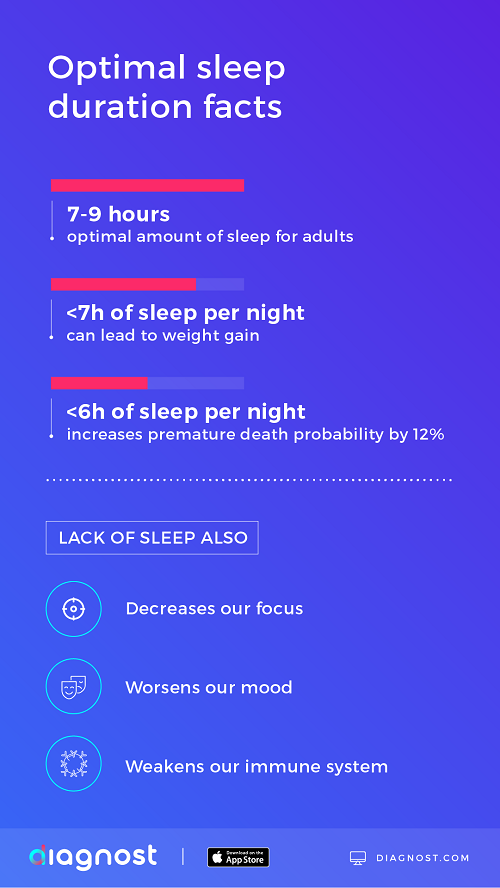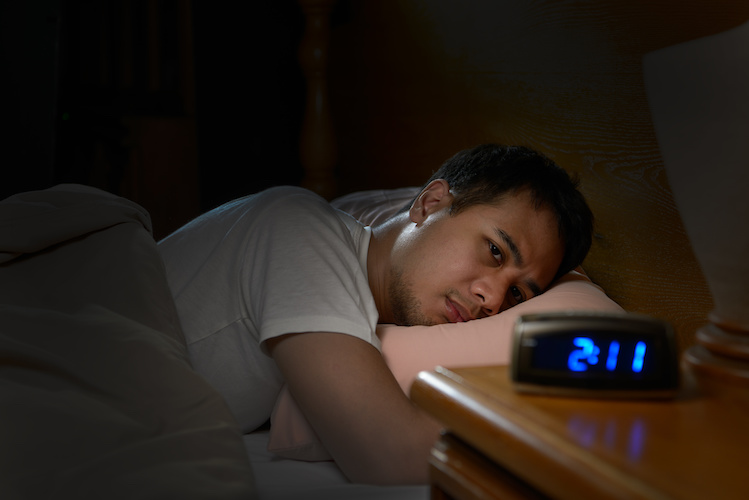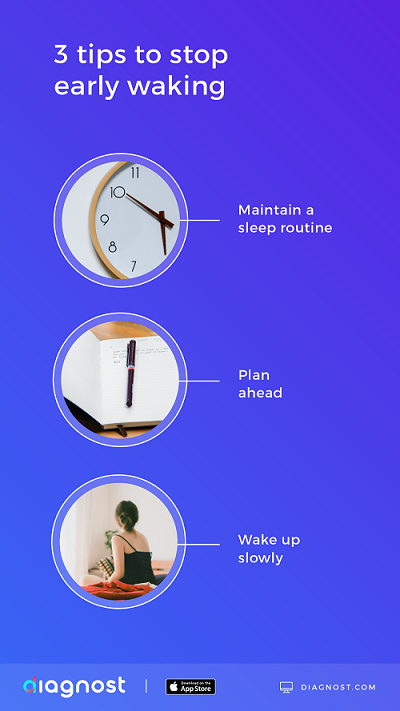How to Stop Early Waking to Be More Rested
Tatiana Bakunina on September 6th, 2019Sleep is important. ‘Every function within the brain and body requires sleep’ according to Neurologist Dr. Kirstie Anderson. Not getting enough sleep makes you feel groggy and unable to focus the next day. In the long term, mental health problems, heart problems, diabetes and cancer are all more likely if you do not sleep enough.
Despite the overwhelming evidence for the importance of sleep, almost one third of people in the UK aren’t getting enough sleep.
While there are many reasons for this, many of us do not help ourselves by setting early alarms and aiming to wake up early.
We’ve been told that waking up super early is the key to getting a head start in a productivity-driven culture. We have all heard the story of that CEO that wakes up at 3.30am, meditates, goes to the gym, answers all their emails, prays, and arrives in the office before 7 am. Maybe we’ve even tried to be that person, attempting a bleary-eyed workout and asking ourselves whether 5 am is an appropriate time for breakfast.
However, having more time in the day has no value if you’re too tired to use it. Productivity is about efficient use of the limited time you have. Skipping sleep might feel like buying time, but it bites you back eventually.
Fact: you need your sleep!

The simple fact is that you need sleep. Try as we might, to defy our bodies – we can’t.
Reduced sleep has been shown to link to all kinds of health conditions. Research by Harvard University shows that lack of sleep affects your ability to focus and mood.
It has also been linked to early death. The NHS reported on a series of studies that suggested that sleeping less than six hours a night makes you 12% more likely to die prematurely than someone who sleeps up to eight hours.
Studies have also shown that lack of sleep affects immunity. Researchers found that people on little sleep are more likely to catch a cold.
The connection between lack of sleep and weight gain has also been extensively researched. In 2008, professors at the University of Chicago, found a link between sleep loss and an increased risk for obesity and diabetes. One reason for this is because you need more energy from food when you haven’t got it from sleep. It’s also because the chemical that makes you feel full, leptin, is reduced, while ghrelin, the hunger hormone, increases when you are operating on less than 7 hours sleep.
Furthermore, not sleeping enough can negatively affect your mental health, lifespan, immunity, and weight.
How much sleep do you need exactly?
So how much sleep do we need? According to the NHS, most grown-ups need between six and nine hours of sleep per day. The National Sleep Foundation recommends seven to nine hours of daily sleep for adults and points out that the exact number depends on when your body reaches optimal functionality. This means that on average, we should ensure we get at least seven hours of sleep regularly, while not going to the other extreme either.
So, what causes early rising?

Insomnia
Insomnia is a medical condition that you can discuss with your doctor. There are varying degrees of insomnia, from minor to severe. There are many causes of insomnia, some can be lifestyle-based and some can be genetic or hereditary. If you are suffering from severe insomnia, your doctor may well suggest medical solutions, while there are natural supplements you can take too, insomnia can be serious and may need more drastic measures in order to start getting you on track.
Obstructive sleep apnea (OSA)
Sleep apnea or snoring has been linked to early rising. In the REM phase of sleep that your body goes into the second part of the night, the sound from snoring as well as the physical sensations, can wake you up early (this goes for if your partner snores too!) Interestingly, snoring has been shown to worsen due to colds (because of congestion), but also lack of sleep itself. Look at this NHS article to find a wide range of treatment solutions from mouth guards to sprays.
Circadian rhythm disorder and aging
Your circadian system looks after the health, regularity and depth of your sleep cycles. While stress and lifestyle factors can cause circadian rhythm disorders, a key cause is aging. Many people find sleeping harder as they age, the reason being that the ‘machinery’ of sleep if you will, stops working as well. If you are experiencing early waking as a symptom of aging, make sure that your home environment is as supportive to sleep as possible.
Anxiety and depression
Unfortunately, when it comes to anxiety and depression, it is very easy for sleeplessness to be bound up in a vicious cycle. Anxiety and depression are both symptoms and causes of sleep loss. This destructive cycle compounds the causes and effects of sleep and mood. If you find yourself in a loop where your mental health is affecting your sleep which in turn in negatively affecting your mental health, it is important to try to simply break it. Book a holiday where you can just rest and get away! In the modern world, it can be hard to justify a holiday but the fact that you’re not sleeping well is reason enough. Take yourself on a retreat where your only intention is to sleep as much as possible. Your body will thank you for it.
There are so many causes for waking up too early. This sleep balance check could help you identify the main reasons you are rising early, and help you figure out what to do to stop it!
How to stop early waking

Sleep routine
Our circadian rhythm responds incredibly well to routine. This is because our body’s release of melatonin (the sleep hormone) is synced to the time of day. A key reason why early rising can leave you so bleary-eyed, even if you have had 8 hours of sleep, is that it involves rising while your body is producing melatonin. This confuses the entire system – and doesn’t set you up for a productive start at all!
Waking up slowly
Waking up slowly is a key way to soak in the benefits of sleep. Many of us make the mistake of having our alarms on your phones, meaning we wake up to a barrage of unanswered emails and messages. This shock to the system gives us a spike of adrenaline first thing in the morning that we pay for throughout the day.
Invest in an old-school battery alarm, and put your phone in another room while you sleep. Doing this will help you on three accounts: 1. It will help you fall asleep in a relaxed healthy way, without scrolling through your phone. 2. It will reduce the levels of radiation that you are exposed to through the night. 3. It will give you a relaxed gentle start which will set your up for seizing the day when it really counts.
Think ahead
Knowing what time you need to wake up and making sure you are in bed in time to get 8 hours sleep is probably the most effective way to get the right amount of sleep. If you suffer from waking up too early, or from struggling to fall asleep, making sure you have 9 hours of actually lying in bed will work wonders, even if you’re not actually asleep the entire time. Additionally, deciding to spend that final hour until your alarm lying in bed and doing breathing exercises, rather than following the impulse to rise too early, is an important decision you can make to start taking care of your circadian rhythm today!
Takeaways
We shouldn’t see sleep as an obstacle to productivity – quite the opposite, investing in a good night’s restful sleep might be the best way to make sure you get a good day’s work. Most adults need between 7 and 9 hours of sleep to work at optimal functionality and early waking can be a major obstacle to reaching our highest energy and productivity levels. If you’re struggling to sleep through the night, follow our tips in this article. Of course, if you really want to dig deeper, our sleep balance check can help you to understand your sleep problems better and find the best solution for your health.



